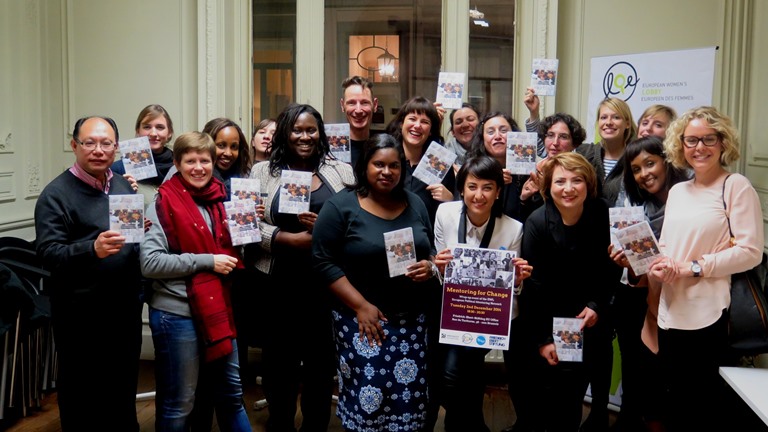By Leanda Barrington-Leach – 31.10.2012 / 05:58 CET
The European Commission is undermining EU treaties and stifling the democratic process.
In a spectacular display of lack of solidarity following weeks of public discord, the college of European commissioners last Wednesday (24 October) failed to give its backing to a draft directive presented by Viviane Reding aimed at increasing the number of women on boards of administration across Europe.
Citing last-minute legal concerns regarding a proposal already one year and a half in the making and already so watered down as to prompt the European Women’s Lobby to label it “too weak to oppose”, the Commission moved to delay the announcement of the proposal until 14 November.
The European boardroom is still a very male place. More than 65 years after the Treaty of Rome assigned the EU the task of tackling gender inequalities in employment, more than 85% of board members of private companies are male, as are 97% of chief executives.
In spring 2011, in the context of a crisis that called into question the wisdom of leaving the ‘old boys’ club’ to go on with ‘business as usual’, the Commission finally took up the issue and sounded a warning bell to companies in Europe to sign up to change or face regulation. Very, very few heeded the warning and so, this March, Reding announced that she would propose legislation to open access for qualified women to top decision-making posts.
A draft text set a target of 40% representation for women by 2020 but restricted the reach of the law to such an extent as to make it virtually toothless. The application to only the largest publicly quoted companies meant it would apply to very few employers; limiting the legislation to non-executive positions undermined all claims of improving women’s representation in decision-making; leaving the choice of sanctions up to the member states meant effective enforcement would be unlikely.
The very fact that the Commission put the issue on the agenda was a sign of changing attitudes across the EU. A number of countries have passed legislation with targets and sanctions for non-compliance. The European Parliament has put its weight behind quotas, because, as the European Parliament’s rapporteur on the topic, Sophia in ‘t Veld, has put it, “spontaneously it ain’t gonna happen”.
This message should resonate strongly with the commissioners, one-third of whom are women. The gender balance of the current college of commissioners would have been very different if women’s associations and MEPs had not taken strong action to ensure women were allowed into the running for the posts in 2009. Of the first 20 member states to nominate their commissioners, 17 selected men. When the European Parliament threatened to withhold approval of the new Commission should it not contain at least one-third women, the remaining seven countries duly found suitable female candidates.
The lesson of their nominations in 2009 should not be lost on the commissioners. Instead of shying away from legislation because of widespread popular misunderstanding of quotas as undermining rather than promoting meritocracy, the commissioners should embrace this opportunity to strengthen the credibility of their institution and the transparency of their own recruitment procedures.
The Commission is supposed to be the “guardian of the EU treaties” and the treaties very clearly call on the EU to protect and promote equality between women and men. The commissioners are also supposed to defend the European interest independently from the interests of their home countries. The past few months have instead seen the Commission back down and fall into disarray when faced with the first signs of opposition from member states.
The Commission must reassert its independence and put forward a strong legislative proposal. At a time when the viability and value of the EU is being questioned by many of its citizens, it is all the more crucial to uphold and champion the fundamental European values of equality, democracy and transparency. The commissioners now have just two weeks to do that.
Leanda Barrington-Leach works for the European Women’s Lobby.


